Big Red Book
Celebrating television's This Is Your Life
2 March 1991
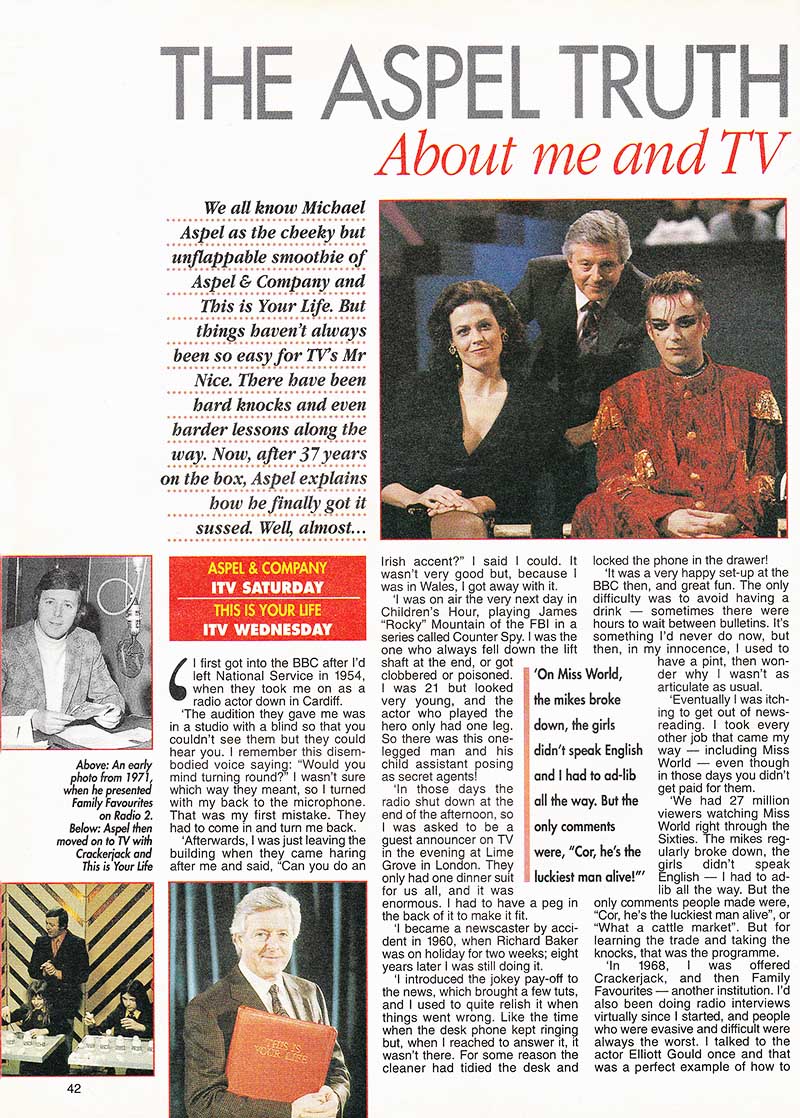
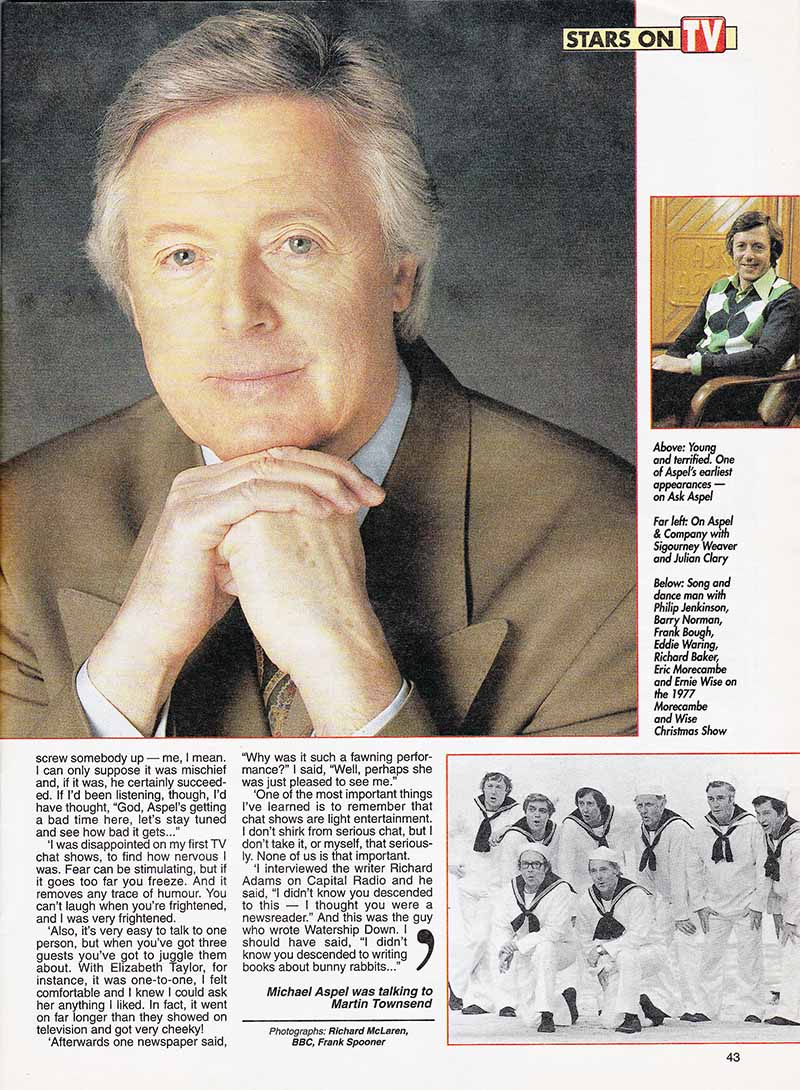
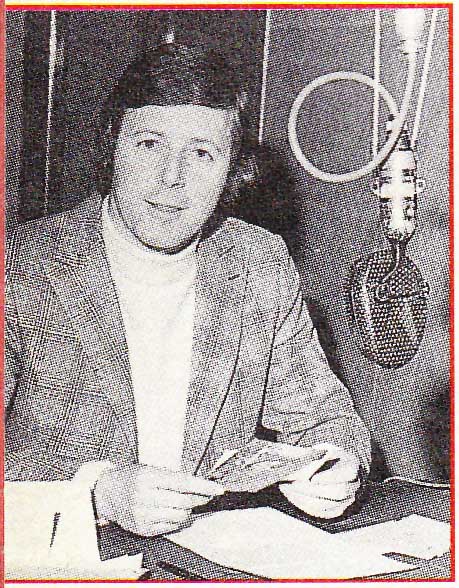
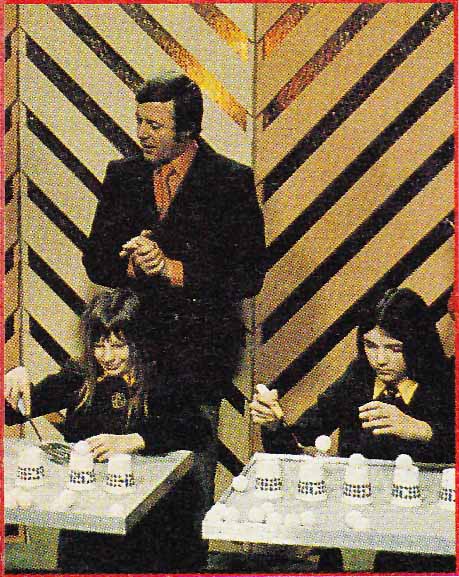
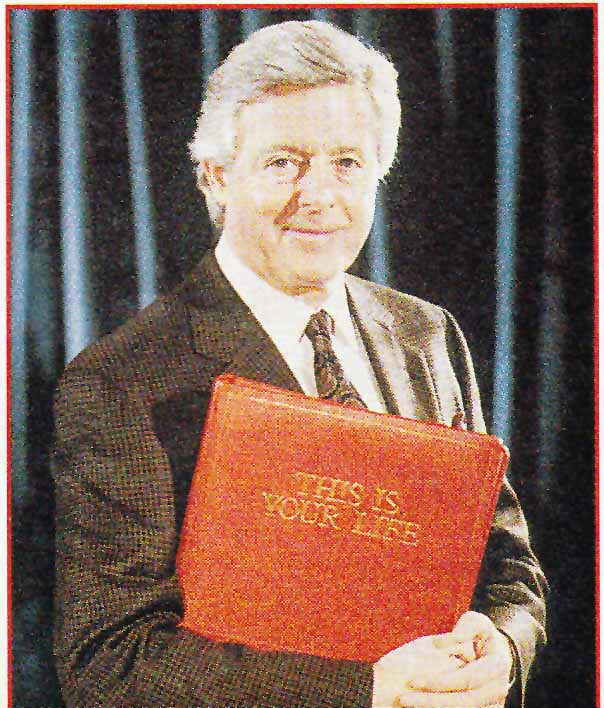
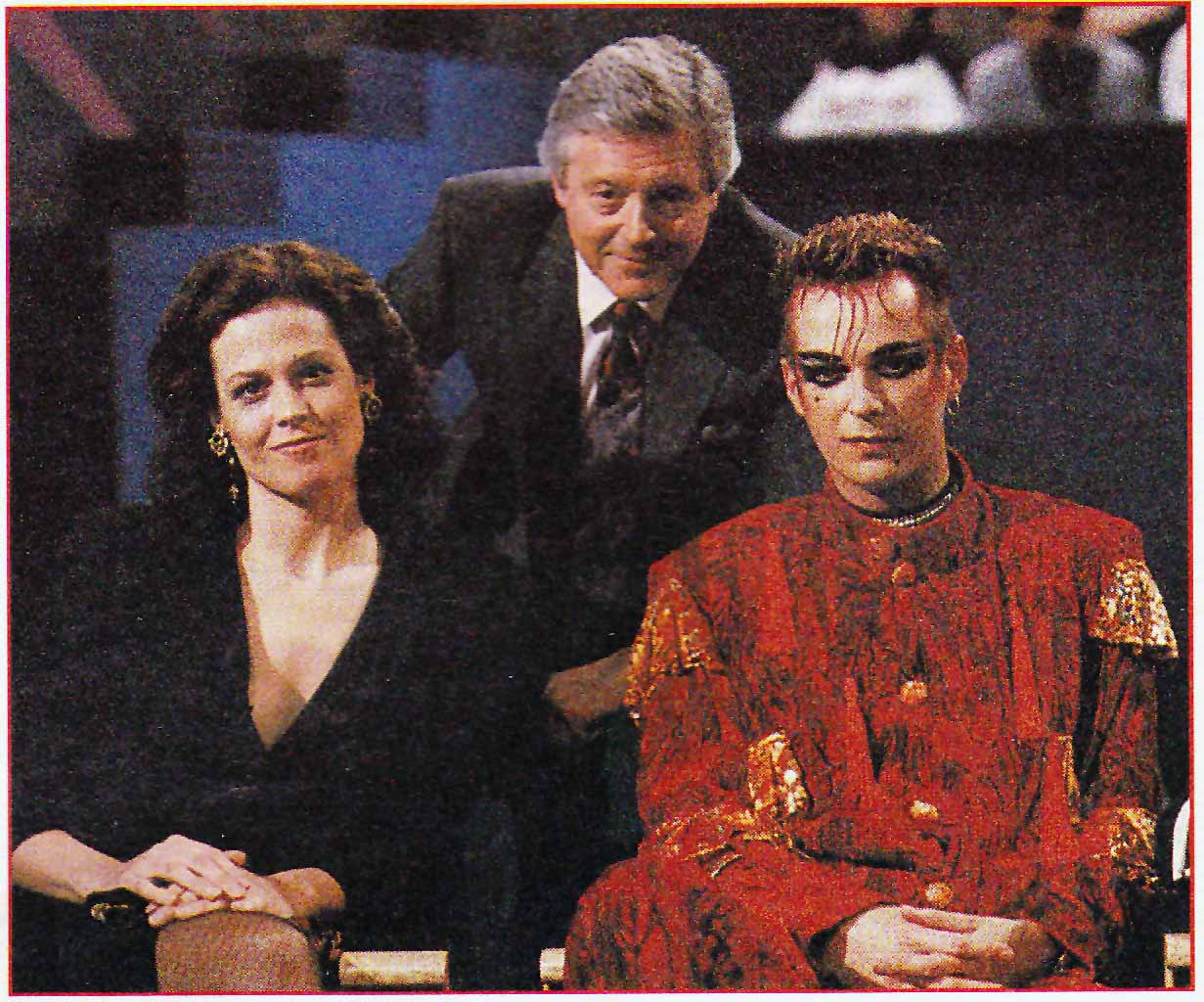
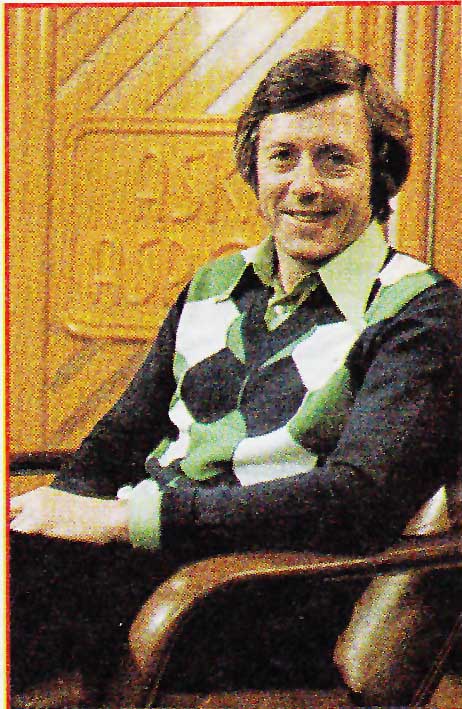
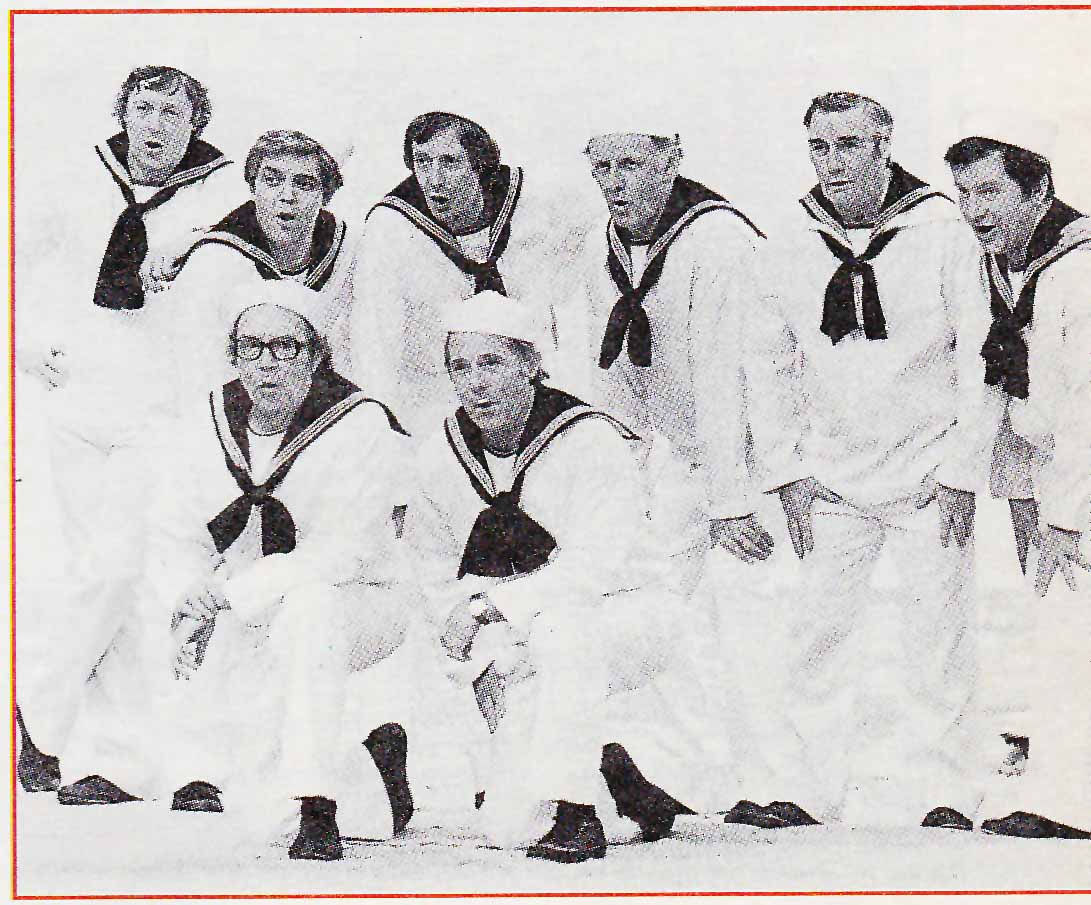
a career review
his 1980 This Is Your Life appearance
THE ASPEL TRUTH
About me and TV
We all know Michael Aspel as the cheeky but unflappable smoothie of Aspel & Company and This Is Your Life. But things haven't always been so easy for TV's Mr Nice. There have been hard knocks and even harder lessons along the way. Now, after 37 years on the box, Aspel explains how he finally got it sussed. Well, almost...
I first got into the BBC after I'd left National Service in 1954, when they took me on as a radio actor down in Cardiff.
The audition they gave me was in a studio with a blind so that you couldn't see them but they could hear you. I remember this disembodied voice saying: "Would you mind turning round?" I wasn't sure which way they meant, so I turned with my back to the microphone. That was my first mistake. They had to come in and turn me back.
Afterwards, I was just leaving the building when they came haring after me and said, "Can you do an Irish accent?" I said I could. It wasn't very good but, because I was in Wales, I got away with it.
I was on air the very next day in Children's Hour, playing James 'Rocky' Mountain of the FBI in a series called Counter Spy. I was the one who always fell down the lift shaft at the end, or got clobbered or poisoned. I was 21 but looked very young, and the actor who played the hero only had one leg. So there was this one-legged man and his child assistant posing as secret agents.
In those days the radio shut down at the end of the afternoon, so I was asked to be a guest announcer on TV in the evening at Lime Grove in London. They only had one dinner suit for us all, and it was enormous. I had to have a peg in the back of it to make it fit.
I became a newsreader by accident in 1960, when Richard Baker was on holiday for two weeks; eight years later I was still doing it.
I introduced the jokey pay-off to the news, which brought a few tuts, and I used to quite relish it when things went wrong. Like the time when the desk phone kept ringing but, when I reached to answer it, it wasn't there. For some reason the cleaner had tidied the desk and locked the phone in the drawer!
It was a very happy set-up at the BBC then, and great fun. The only difficulty was to avoid having a drink – sometimes there were hours to wait between bulletins. It's something I'd never do now, but then, in my innocence, I used to have a pint, then wonder why I wasn't as articulate as usual.
Eventually I was itching to get out of news-reading. I took every other job that came my way – including Miss World – even though in those days you didn't get paid for them.
We had 27 million viewers watching Miss World right through the Sixties. The mikes regularly broke down, the girls didn't speak English – I had to ad lib all the way. But the only comments people made were, "Cor, he's the luckiest man alive", or "What a cattle market". But for learning the trade and taking the knocks, that was the programme.
In 1968, I was offered Crackerjack and then Family Favourites – another institution. I'd also been doing radio interviews virtually since I started, and people who were evasive and difficult were always the worst. I talked to the actor Elliott Gould once and that was a perfect example of how to screw somebody up – me, I mean. I can only suppose it was mischief and, if it was, he certainly succeeded. If I'd been listening, though, I'd have thought, "God, Aspel's getting a bad time here, let's stay tuned and see how bad it gets..."
I was disappointed on my first TV chat shows, to find how nervous I was. Fear can be stimulating, but if it goes too far you freeze. And it removes any trace of humour. You can't laugh when you're frightened, and I was very frightened.
Also, it's very easy to talk to one person, but when you've got three guests you've got to juggle them about. With Elizabeth Taylor, for instance, it was one-to-one, I felt comfortable and I knew I could ask her anything I liked. In fact, it went on far longer than they showed on television and got very cheeky!
Afterwards one newspaper said, "Why was it such a fawning performance?" I said, "Well, perhaps she was just pleased to see me."
One of the most important things I've learned is to remember that chat shows are light entertainment. I don't shirk from serious chat, but I don't take it, or myself, that seriously. None of us is that important.
I interviewed the writer Richard Adams on Capital Radio and he said, "I didn't know you descended to this – I thought you were a newsreader." And this was the guy who wrote Watership Down. I should have said, "I didn't know you descended to writing books about bunny rabbits..."
Michael Aspel was talking to Martin Townsend